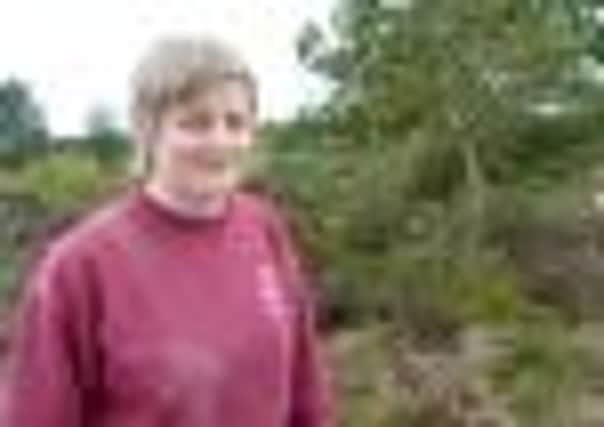The doctor who found healing on the North York Moors


DOCTORS are often the last to heed their own advice and look after their heath. Elspeth de Montes was no exception – she freely admits that she ignored signs that all was not well until she found herself in a crisis situation.
After medical school in Glasgow, she trained as a GP and at 25 was commissioned as a medical officer with the Army. In October 2010 she travelled to Afghanistan with 40 Commando Royal Marines and spent six and a half months as a general practitioner on the front line, based at Sangin in Helmand Province.
Advertisement
Hide AdAdvertisement
Hide Ad“While I was there, I just did what soldiers and doctors do – cracked on with the work,” says Elspeth. “It was when I came home that I began to feel things weren’t right. I couldn’t relax, didn’t want to interact with anyone so I isolated myself. I felt robotic, lost and unsettled. I put on a smile and a front, but I was using up so much energy and effort to manage my work that it was my social life and home life that suffered. I became over-sensitive to noises, which would remind me of experiences in Afghanistan.” Elspeth was seriously debilitated for months.
These feelings got worse over time, and Elspeth became more withdrawn and quiet. She was no longer coping at work because she felt so upset and emotional most of the time. “It finally came to a head, and I wasn’t able to do the job. I’d kept going because I had high expectations of myself, but I needed to be a patient and be looked after. I’d not addressed my feelings while in Afghanistan, and a doctor has to be there for their medic colleagues and patients. I realised I hadn’t looked after myself, even though I had experienced so much death...”
Elspeth went to her commanding officer, and was seen by a military psychiatrist and psychologist. She was diagnosed with post traumatic stress disorder (PTSD) and was therapy, working through her experiences and her reaction to them. At the point where she was judged to be close to being able to start a gradual return to work but wasn’t quite ready to put on the uniform and be Major de Montes again, Elspeth applied for a placement under a new initiative which involves the North York Moors National Park Authority (NYMNPA) giving work experience to wounded, sick and injured military personnel as part of their rehabilitation.
Elspeth de Montes was the first to take up a placement, and spent two months doing environmental conservation work. Having finished her attachment to the National Park, she says she feels much more ready to face the demands of work.
Advertisement
Hide AdAdvertisement
Hide Ad“I am much more confident than when I started. On the first day I put on a smile and although it was difficult I got on with it, doing physical work like digging holes, laying paths, erecting fencing and generally being accepted as one of the volunteers.
“One day I did have a wobble and couldn’t face going in and talking to people – so I was given some ear defenders and put to work on the wood chipping machine, where I could be alone and just get on with it.
“Being part of a team, getting stuck into dirty and strenuous work, and enjoying the company of the field assistants and apprentices was just what I needed. The banter was like being with the guys in the Army and I found I could deal with people again.
“With my illness no one can see it, it’s hidden below the surface and people say ‘what’s wrong with you? You came back alive and with all your limbs...’ But the experience can mark you badly in all sorts of ways. My work with the National Park was enjoyable and has really helped to set me back on the road to work.” Elspeth hopes to go back to full active service before long.
Advertisement
Hide AdAdvertisement
Hide AdRetired lieutenant colonel Tony Stevenson, who volunteers with the National Park Authority, was involved in the inception of the project to help military personnel to find their feet again and also learn skills that would be useful if they choose to return to civilian life rather than their uniform. No money changes hands, but both sides benefit.
“We’re hoping to get other national parks involved, as there are 5,000-6,000 wounded, injured and sick military personnel in recovery programmes at the moment, says Tony.
“It would also be great to widen it out to include ordinary military service leavers, who could gain new skills and get a NVQ2 qualification in environmental conservation. Military people are a good fit for this kind of work, as they are team players, highly motivated and they revel in a physical challenge. We’ve seen a big difference in Elspeth. She was quiet as a mouse when she came for the interview.”